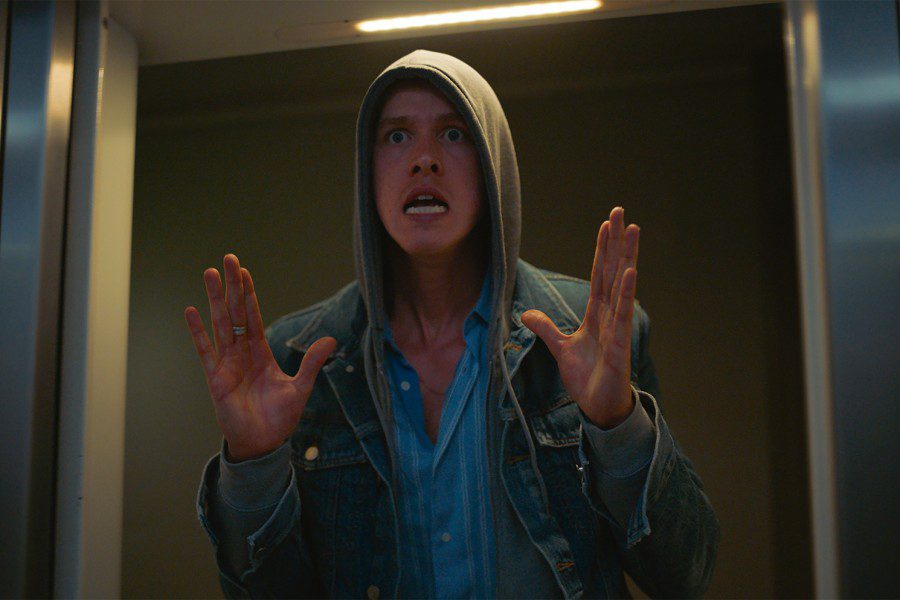NYFF 60 Review: ‘Triangle of Sadness’ is an outrageous and heavy-handed work of brilliance
Ruben Östlund’s newest social satire comments on class warfare, socioeconomic inequities and contemporary politics in a ridiculously heightened and often hilarious way. “Triangle of Sadness” recently screened at the 60th New York Film Festival and is playing in select theaters across the city.
Courtesy: “Triangle of Sadness” by Ruben Östlund is now available in selected theaters. (Courtesy of Neon)
October 12, 2022
Swedish filmmaker Ruben Östlund’s “Triangle of Sadness,” which took home the Palme d’Or at the Cannes Film Festival this year, is one of the year’s most anticipated and acclaimed films. In his new film, Östlund examines social hierarchies, gender roles, conflicting political ideologies, financial inequality and so much more, that it’s quite admirable the entire piece didn’t wind up a complete mess.
The director’s previous film, “The Square” — which won the Palme d’Or as well — also commented on class structure, granted in a much more grounded manner despite both films’ satirical nature. Whatever the case, “Triangle of Sadness” is ambitious in its craft, albeit a tad scatterbrained with its heavy-handed commentary.
Split into three parts, Östlund’s film begins with a look into the world of male modeling, in which the viewer is introduced to one of the film’s many leads, Carl (Harris Dickinson). Immediately, the film begins to comment on the financial inequality between male and female models, with female models making significantly more money and holding higher status. The following scene is of a fashion shadow with Carl’s girlfriend, Yaya (Charlbi Dean Kriek). Later that night, they find themselves fighting over the check. While Yaya makes more money than Carl, she assumes he will pay the check and doesn’t offer to pay, which upsets him.
They then have a heated argument about gender roles that prides itself on its lack of subtleness — the commentary is so purposefully ham-fisted that it strikes as hilarious. Carl and Yaya’s problems are minor inconveniences. Their argument, at the end of the day, very much means nothing in the grand scheme of what Östlund is attempting to communicate with his film.
The second half of “Triangle of Sadness” is its most entertaining, revolving around an expensive yacht trip that Carl and Yaya are able to board for free. We’re introduced to a plethora of characters, including the alcoholic communist captain Thomas Smith (Woody Harrelson) and capitalist Russian businessman Dimitry (Zlatko Burić).
The two men often share drunken scenes together, exchanging famous philosophical and political quotes from Karl Marx, Noam Chomsky and Mark Twain. Their interactions are incredibly entertaining and comedic, with Dimitry often stating outright, “I sell shit” — a statement that, although true to his sewage entrepreneurship, highlights the film’s intentional lack of in-depth introspection or analysis.
Other guests on the yacht include Winston (Oliver Ford Davies) and his wife Clementine (Amanda Walker), who make their living manufacturing hand grenades. Ironically, their heightened characterization does nothing but reinforce socioeconomic realities that are quite familiar. Every other guest on the yacht is upper-class, and they all seem to blend together as the same person, which may very well be the point.
The third and final part of the film takes place on an island after the yacht’s guests and crew are washed ashore, and in some cases killed, following a sudden crash. The small number of characters who survive include the yacht’s toilet manager, Abigail (Dolly de Leon), who takes it upon herself to look after everyone, find food, establish order and assert dominance.
Here, the film goes from ridiculous satire to ironic cynicism. This segment of the film is not only a commentary on class structure, but on gender roles as well. The rich and entitled guests of the yacht, men and women alike, learn to subject themselves to Abigail’s rule as she effectively establishes a matriarchy on this seemingly deserted island. Of course, this wouldn’t be a pessimistic satire if things didn’t go awry.
“Triangle of Sadness” is an ambitious study on socioeconomic equality at a global scale. It is a wild ride of a film with a lot to digest, and it’s pretty impressive that it works as well as it does. Its oddly organized nature is reminiscent of Federico Fellini’s “Amarcord” in the sense that it probably looks like a complete mess on paper, but is a funny and clever film topped off with great craftsmanship.
Contact Yezen Saadah at [email protected].

























































































































































